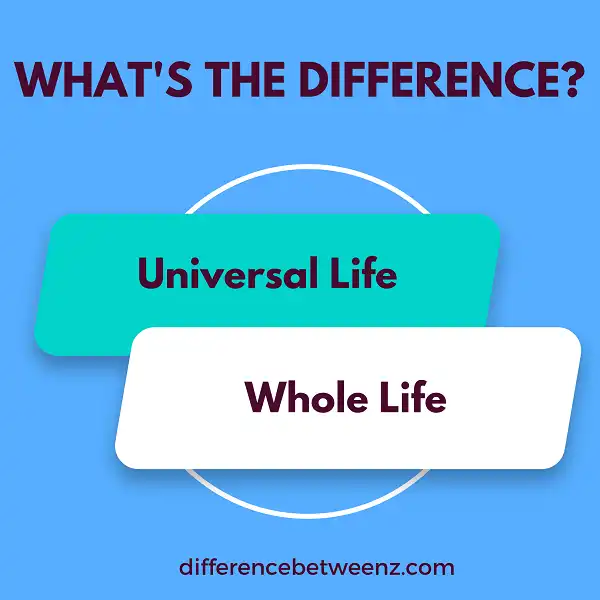There are many types of life insurance policies available, and it can be difficult to decide which one is right for you. Two of the most common types are universal life and whole life policies. Both have their pros and cons, so it’s important to understand the difference between them before you make a decision. In this blog post, we will break down the key differences between Universal Life and Whole Life policies.
What is Universal Life?
Universal life is a type of permanent life insurance that offers policyholders the flexibility to pay their premiums and adjust their coverage levels as their needs change over time. Universal life also features a cash value component, which grows tax-deferred and can be accessed through loans or withdrawals. Universal life policies are typically more expensive than Term life insurance, but they offer the potential for greater long-term growth and protection. Universal life is a popular choice for those who want the flexibility to make changes to their coverage level and premium payments as their needs change over time. If you’re looking for a permanent life insurance policy with the potential for cash value growth, Universal life may be the right choice for you.
What is Whole Life?
Whole life is a type of permanent life insurance that covers you for your entire life. Whole life policies have level premiums, meaning that your monthly payments stay the same throughout the life of the policy. Whole life also has a cash value component, which grows over time and can be accessed by the policyholder if they need it. Whole life is a good choice for people who want coverage for their entire life and who want to build up some cash value that they can access if needed. Whole Life policies typically have higher premiums than term life insurance policies, but the cash value component can make them a good long-term investment.
Difference between Universal Life and Whole Life
Universal life insurance and whole life insurance are two of the most common types of permanent life insurance policies. Universal life insurance provides death benefit protection and cash value accumulation, while whole life insurance provides death benefit protection, cash value accumulation, and guaranteed level premiums. Universal life insurance policies are more flexible than whole life insurance policies, allowing policyholders to adjust their premium payments and death benefits.
Whole life insurance policies have higher premiums than universal life insurance policies, but they also provide guarantees regarding the cash value growth and death benefit payments. Universal life insurance is best for people who want more control over their policy costs and benefits, while whole life insurance is best for people who want the stability of guaranteed cash value growth and death benefits.
Conclusion
The purpose of this blog post was to provide an overview of the differences between Universal Life and Whole Life insurance policies. We hope that it has been helpful in understanding the key concepts involved in making an informed decision about which type of life insurance policy is best for you and your loved ones.


